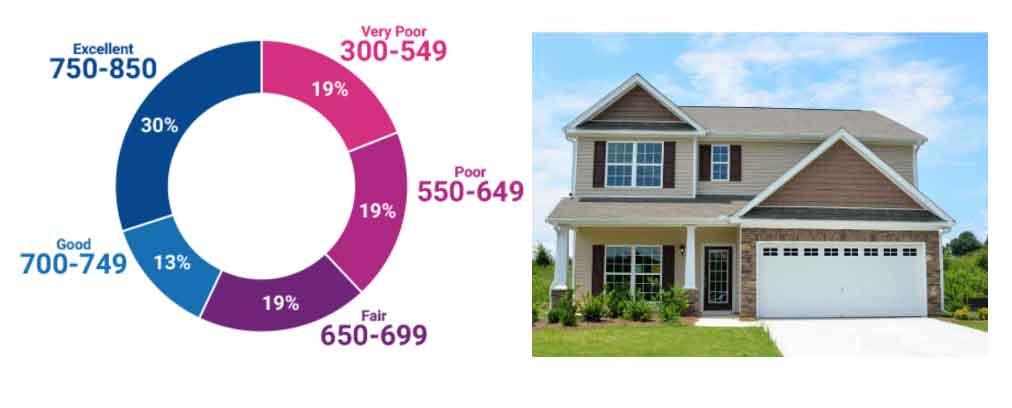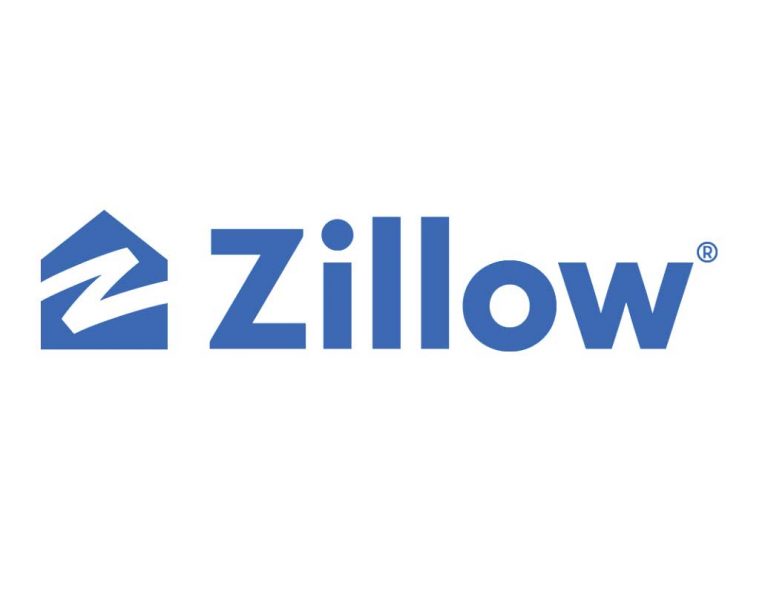Getting a Home Loan with Bad Credit
One of the primary factors lenders consider when you apply for a mortgage is your credit score. They normally use what’s called a FICO score, which is a number that ranges between 300 and 850. Lenders use this number to assess your trustworthiness, as it represents your recent and extended credit history. How you have performed with your financial accounts and creditors in the past is a strong prediction of how you’ll behave in the future, especially whether or not you can make a monthly payment consistently.
Credit Scores and Home Loan Eligibility
Most lenders require a credit score of at least 620 to qualify for a home mortgage.
However, there are also mortgage programs available for people with bad credit, as low as 500. People with credit scores below 500 represent such a financial risk to lenders that it is not worth applying for a loan with a credit score that low. A loan officer I asked recently who specializes in VA loans told me he’s never seen someone qualify for a loan in his office with a credit score lower than 512.
FHA loans are the most common type of used loans for low credit scores. The Federal Housing Authority will insure loans for people who have credit scores as low as 500. VA home loans are also available for people with credit scores as low as 500, although that threshold isn’t determined by the Department of Veteran Affairs, but by subprime (low credit) lenders themselves.
In situations where lenders provide home loans to borrowers with low credit scores, there are usually strict requirements in terms of allowable debt to income ratios and mortgage insurance.
Anyone who is pursuing a home loan and has bad credit should be leery of predatory lending, which most commonly happens among low income, bad credit borrowers.
Some Things to Consider About Bad Credit Home Loans
Indeed it is possible to get a home loan with bad credit, as low as a FICO score of 500. You can learn about some of the various approaches for doing that throughout this article. But first, you should know this: in the majority of situations where people have bad credit, it is a very strong signal that they are not being responsible with their finances. There are, of course, exceptions to that rule, such as in cases where someone has had a major medical emergency or has been affected by some other extenuating circumstance beyond their control that has lowered their credit rating. However, generally speaking, people who have bad credit should not be looking to add more debt load to their lives.
If your bad credit has been caused by a lack of financial responsibility on your part, consider this: adding a mortgage to an already difficult financial situation (as evidenced by a low credit score) could likely deal a death blow to your financial survival. If this is your situation, consider taking another route. Take some time to clean up your credit, save some money, and develop more financial discipline. And then when you get a home loan, you’ll likely get better terms. You’ll be in a much more stable situation, which will reduce your stress and increase your confidence.
If you’d like to clean up your financial life and put yourself in a better situation, I recommend getting involved in a program such as Dave Ramsey’s 7 Baby Steps for Saving Money, Reducing Debt, and Building Wealth. Depending upon your situation, you may be able to quickly repair your credit, save some money, and be ready to buy a home within a year.
What is Considered Bad Credit?
Let’s start answering this question with what’s considered a good credit score. According to Experian, one of the three major credit reporting bureaus, a good credit score is anything above a 670 score. A 740 score is considered very good. Once you reach a credit score of 800, you are in the top 20% of potential credit applicants, which means you will receive the best rates lenders have to offer, as they’ll be taking the least amount of risk on you.
If your credit score is 579, most lenders will consider you to have bad credit, and you will have difficulty getting good rates from lenders if they will provide a loan to you at all. When you get close to 500, the changes of having credit extended to you all but vanish.
How to Improve Your Credit
Improving your credit is essentially a financial repentance process. You need to recognize that something about your spending and paying habits needs to change, and begin to make those changes immediately.
Check Your Credit Report for Mistakes
First, review your credit report for anything that might be inaccurate. It occasionally happens that mistakes are made with accounts receivable or account collection departments. Utility companies and others who report on your credit are known to make mistakes. When I was a student in college, I once had Qwest Communications add some mysterious charges to my phone bill, claiming to have come into my apartment and installed a jack, which wasn’t true. While I was perfectly happy to pay my legitimate bill, I was unwilling to pay this additional fee, and that was reported to the credit bureaus. I had to petition to have that ding on my credit score removed.
Make Things Right on Your Accounts
You can start by going to those you owe money to and finding a way to fix the situation, whether it be a loan you’re behind on, your utility bill, your cell phone bill, or anything else that is being reported to the credit bureaus: Experian, TransUnion, and Equifax. If you look through your credit report, you can see where you have been dinged for late or defaulted payments. Contact those companies and make things right. If you don’t have the cash to get caught up, set up a payment plan with them and stick to it.
Once you’ve made things right with them, you should be able to insist that they remove the negative mark off your credit report. Often people even make that contingency (removing the credit ding) a part of any agreement they make with creditors to get caught up.
Authorized User on Established Account
One trick people often use to fix their credit is to have themselves added to an account that is in good standing. Especially if it’s an account that has a long history, being on an established account can pull up a person’s credit score. If you have a close friend, business associate, or relative who would be willing to help you with this, it doesn’t hurt to politely ask.
Factors That Compensate for Bad Credit
Your credit score is one of many factors that determine whether you can get a home loan and what terms you’ll receive. There are several other factors that affect your eligibility for a home loan, including:
- your debt to income ratio (DTI), which affects your ability to make mortgage payments; those with lower credit scores much have lower DTI ratios, meaning that outside of the payment associated with the mortgage they’re applying for, they can’t have
- how much cash you have available for a down payment; a higher down payment translates into equity available in the house being purchased, which makes the borrower less likely to default
- your monthly income
- having a co-signer If someone who trusts you is willing to co-sign for you, that can have a redeeming effect, as that person’s credit becomes a more important factor. Be very careful with this arrangement, as friendships and other relationships have often been destroyed by co-signing arrangements in case of a default.
While these factors can compensate for bad credit, only having a co-signer will give you the opportunity to get a home loan from most lenders (aside from FHA) if your credit score is lower than 550.
How Bad Credit Affects Your Monthly Loan Payment
One of the problems with getting a mortgage when you have bad credit is that the lender has to compensate for the risk that you pose to the arrangement. This compensation is normally done through higher mortgage insurance premiums, a higher rate, and higher fees. This situation compounds the problem for someone looking to borrow money for a home. If you’re already struggling to keep up financially, and you get a home loan that is a worse deal than if you were in a better situation and had better credit, you’ll essentially be paying extra each month at a time in your life when you can likely least afford it.
Avoiding Predatory Lending
In too many cases, those who are pursuing a home loan and have bad credit make themselves susceptible to predatory lending, where unscrupulous loan officers help them get loans that they cannot afford. Predatory lending is defined by the FDIC as “imposing unfair and abusive loan terms on borrowers.” Predatory lenders tend to target those who are most desperate, which typically means low credit borrowers.
To avoid being a victim of predatory lending, you’ll want to check the reputation of the lending brokerage you’re intending to work with. You can do that through the Better Business Bureau, looking for reviews about the brokerage (Google, Yelp, Zillow), and by being well informed about how the entire loan process is supposed to work. If you spend the time learning to understand the entire process of buying a home from start to finish and becoming familiar with how mortgages fit into the home purchase equation, you’ll be much less likely to be treated unfairly or abusively. Also, it’s a good idea to have a healthy skepticism, and to read through all forms, contracts, and disclosures thoroughly, especially if this is your first time with the loan application process.
If you find your mortgage agent fudging numbers, cutting corners, or in any other way being less than straight up, have the confidence to walk away from the deal and, if it’s appropriate, file a report about your experience. You can file a report through the Federal Trade Commission’s online complaint form.
Reputable Sub-Prime Lenders and Loan Programs
If you have determined that, despite your bad credit, you REALLY need to apply for a loan, you may want to start your search with reputable lenders who specialize in low credit home loans. Here is a short list of some of the most commonly used mortgage companies that specialize in sub-prime (bad credit) home loans.
Citadel Servicing Corporation: This company, based in Irvine, California, is the largest non-prime home lender. They operate in 37 of the 50 states in the US. On their loan application page, they claim that they can provide loans for people with FICO “scores down to and below 500”, and that they don’t require mortgage insurance. You can read their Zillow reviews here.
Loans available for properties in these states: AL, AR, AZ, CA, CO, DC, DE, FL, GA, ID, IL, IN, KS, KY, LA, MD, ME, MI, MN, MT, NC, NE, NH, NJ, NV, OK, OR, PA, SC, TN, TX, UT, VA, VT, WA, WI, & WY.
Northstar Funding, Hoboken, New Jersey: Northstar Funding has a long list of home loan options, including choices tailored for people with poor credit. Northstar’s Yelp reviews can be read here. Northstar operates in a more limited market than Citadel. They states in which they operate are listed below.
Available in these states: CA, CO, CT, DC, GA, IL, MD, NC, NJ, NY, PA, RI, SC, and VA.
Angel Oak Mortgage Solutions, Atlanta, Georgia: Angel Oak has specific home loan options geared towards people with poor credit, as low as 500 FICO scores. Their Yelp reviews are here. At the time I write this, it looks like they’re having customer service issues. They operate in 23 different states, listed below.
Loans available in these states: AL, AZ, CA, CO, CT, DE, DC, FL, GA, IL, IN, IA, KS, KY, LA, MD, MI, MN, MS, NJ, NV, NC, OK, OH, OR, PA, SC, TN, TX, UT, VA, WA and WI.
Quicken Loans: Quicken Loans is a nationwide lender, operating in all 50 states. They are one of the most well-known lenders in the United States. Although they do not necessarily specialize in subprime loans, they do provide home loans to those with bad credit.
Making a Decision and Doing What’s Best for You and Your Family
Whatever the reason you might have for bad credit, I hope this information has helped you in making a decision about how you will approach your immediate and long-term financial future. If for some reason you decide to apply for a home loan while your credit is still not fixed, I wish you good luck. I hope it works out well for you, and that better days are ahead for you and your family.
If you choose the more advisable route and decide to go fix your credit and become more stable financially first, I congratulate you on making a tough but mature decision.







